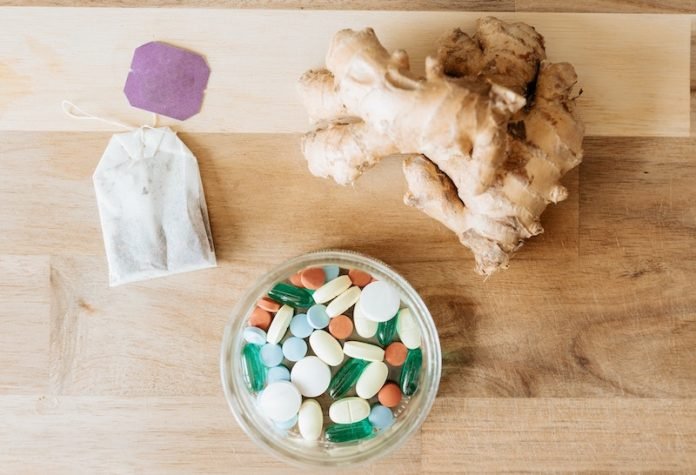
Ever heard of ginger, the spice we often use in cooking? Well, it turns out it might be more than just a flavorful addition to our meals.
Scientists have discovered that ginger may help control inflammation, especially for people dealing with autoimmune diseases.
This means that ginger supplements might be a useful way to manage diseases like lupus and rheumatoid arthritis.
What Scientists Discovered
A group of researchers decided to look into how ginger affects our bodies, particularly, how it impacts our white blood cells. These cells are important as they help our bodies fight off infections.
In their study, published in JCI Insight, they focused on a specific type of white blood cell, called the neutrophil, and how ginger supplements can affect its behavior.
Neutrophils can sometimes create tiny, web-like structures called NETs (neutrophil extracellular traps).
These NETs can promote inflammation and clotting, two things that are involved in many autoimmune diseases, including lupus, rheumatoid arthritis, and antiphospholipid syndrome.
The scientists discovered that consuming ginger can make neutrophils less prone to creating these harmful NETs.
The Study and Its Implications
The researchers conducted a clinical trial where they gave healthy volunteers a ginger supplement every day for a week.
They found that this ginger intake increased levels of a chemical called cAMP inside the neutrophils, preventing them from creating NETs when exposed to disease-related triggers.
This discovery is really exciting because it shows, for the first time, how ginger can have anti-inflammatory effects in humans.
This means that ginger supplements could potentially be used to help manage inflammation and symptoms in people with various autoimmune diseases.
If ginger can indeed help control the overactivity of neutrophils, it could complement existing treatment programs, offering a more strategic and personalized approach to relieving people’s symptoms.
The Journey Ahead
The findings from this study are a big step forward, but there’s still more to learn about how ginger can help people with autoimmune and inflammatory diseases.
The researchers are planning more studies to explore ginger’s potential benefits in patients with diseases like lupus, rheumatoid arthritis, and even COVID-19, where neutrophils are overly active.
These future studies are crucial as they can provide more solid evidence about ginger’s benefits and encourage both health care providers and patients to consider ginger supplements as part of their treatment plans.
Many people already take natural supplements like ginger to manage their symptoms, but understanding more precisely how these supplements impact the disease can lead to better, more informed treatment decisions.
Conclusion
Ginger, a common spice, has shown promise in managing inflammation linked to autoimmune diseases.
While the research has enlightened us about the possible benefits of ginger, it is important to remember that supplements should be discussed with a healthcare provider before including them in any treatment plan, ensuring they are a safe and effective complement to existing treatments.
We hope that further studies will continue to unravel the therapeutic potential of ginger, making it a reliable ally in our fight against inflammation and autoimmune diseases.
If you care about nutrition, please read studies that vitamin D can help reduce inflammation, and vitamin K may lower your heart disease risk by a third.
For more information about nutrition, please see recent studies about foods that could sharp your brain, and results showing cooking food in this way may raise your risk of blindness.
The research findings can be found in JCI Insight.
Follow us on Twitter for more articles about this topic.
Copyright © 2023 Knowridge Science Report. All rights reserved.



